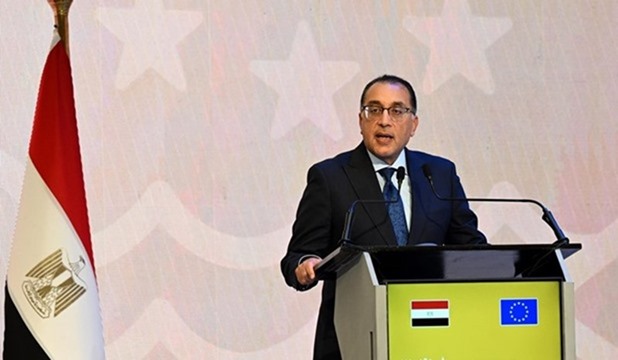
Prime Minister Mostafa Madbouly said Egypt signed 29 agreements and memorandums of understanding (MoUs) worth €49 billion with EU-affiliated companies over the course of Egypt-EU Investment Conference.
During the two-day conference, six agreements and MoUs, worth €18.7 billion in total, were also signed with consortiums and companies, whether European (Non-EU) entities or non-European companies ready for exporting their goods to EU countries, Madbouly noted in his remarks at the event’s closing session on Sunday.
Conveying the greetings of President Abdel Fattah al-Sisi to all attendees, Madbouly said the president was keen on opening the conference with President of the European Commission Ursula von der Leyen, out of his firm belief in the importance of Egypt-EU Strategic and Comprehensive Partnership.
“Egypt sought to host the conference out of its deep belief in the importance of dealing with ongoing economic challenges by following a serious economic reform program that boldly addresses decades-long structural flaws in Egypt’s economic system, while taking the social dimension into account,” the prime minister said.
“Despite the undeniable fallout from regional and international crises, atop of which is the Covid-19 pandemic, the government’s economic reform program, initiated before these crises, has managed to contain and absorb the impact of these crises as much as possible while working for achieving the program targets, topped by supporting the private sector through the State Ownership Policy Document and luring foreign direct investments (FDIs),” Madbouly added.
He said Egypt is trying to give impetus to its economic reform program by deepening its strategic partnership with the EU through this conference, first major step in implementing Egypt-EU Strategic and Comprehensive Partnership, to help in boosting cooperation between the private sector in Egypt and EU, as one of the conference goals.
The conference saw the organization of nearly eight panel discussions that offered a good opportunity for rich discussions led by private sector representatives, the premier noted.




